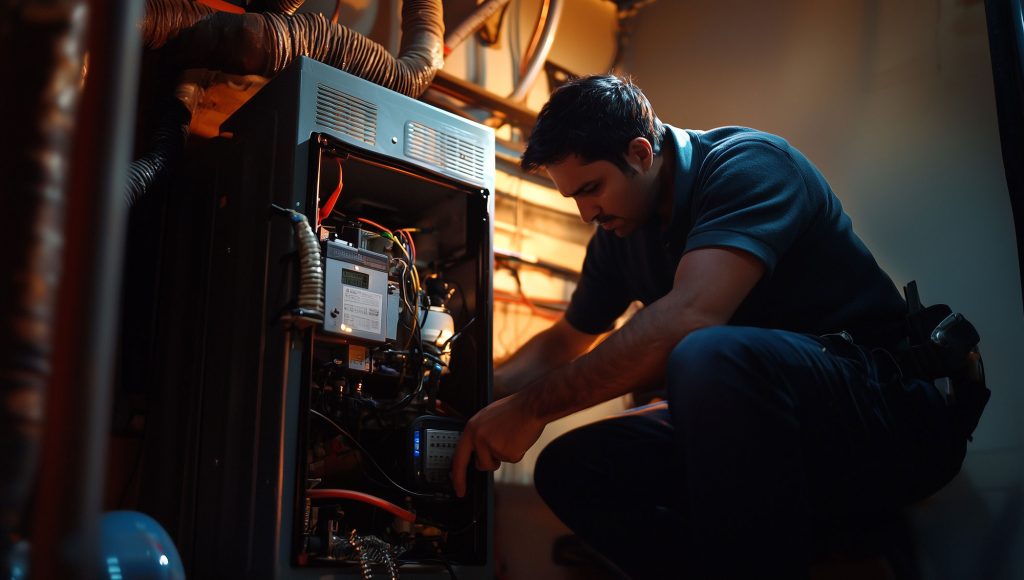HVAC systems keep your home comfortable, ensuring that you and your family stay cozy regardless of the weather outside. Yet, like any other home system, HVAC units require regular maintenance to run efficiently and last longer. Ignoring signs of trouble could lead to costly repairs or even a complete system breakdown. Keep reading to learn what warning signs you should look out for that indicate your HVAC system needs immediate attention.
Unusual Noises
One of the first signs that your HVAC system may need attention is unusual noises. These sounds often indicate underlying issues that, if left unaddressed, can worsen over time.
If you hear banging or clanking, it could be a sign that parts inside the system are loose or broken. This noise is common when components like the motor bearings or blower are starting to fail.
A hissing or whistling sound usually indicates a refrigerant leak or a ductwork issue. Both of these problems can reduce the system’s efficiency and lead to costly repairs if not addressed promptly.
Squealing noises often occur because of issues with the blower motor or fan. These components might be misaligned or need lubrication, requiring immediate professional attention to avoid more significant problems.
Poor Air Quality
Poor air quality is another indication that your HVAC system might be in trouble. If you notice an increase in dust and debris around your home, it could mean that your HVAC system’s filters are clogged or the ductwork is dirty. Dirty filters and ducts can reduce air quality and make your system work harder than necessary. Additionally, bad smells emanating from your HVAC system could indicate mold growth or a pest infestation; this can cause allergy flare ups or respiratory problems among household members.
Inconsistent Heating or Cooling
Inconsistent temperatures throughout your home are a clear sign that your HVAC system needs attention. Understanding the causes and implications can help you address the problem quickly.
If some rooms are too hot while others are too cold, your HVAC system might be struggling to distribute air evenly. This issue can originate from various sources, including blocked vents, leaky ductwork, or a failing thermostat. Short cycling is another issue that occurs due to a malfunctioning thermostat. This is when your HVAC system turns on and off frequently without completing a full heating or cooling cycle.
Increased Energy Bills
One of the first indicators of an HVAC problem is a sudden increase in your energy bills. Understanding the connection between your HVAC system and energy consumption can help you identify issues early.
If your energy bills are rising without a corresponding increase in usage, your HVAC system might be working harder than necessary due to inefficiency. This situation can result from dirty filters, leaky ductwork, or a failing component. While some variation in energy bills is expected due to seasonal changes, significant spikes could indicate an underlying issue with your HVAC system that needs immediate attention.
Frequent Repairs
If you find yourself calling a technician more often than usual, it might be time to consider the overall health of your HVAC system. Regular maintenance can help extend the lifespan of your HVAC system, but frequent repairs indicate that components are wearing out faster than they should. Weighing the cost of frequent repairs against the price of a new system can help you decide whether it’s time to invest in a replacement. Sometimes, upgrading to a more efficient unit can save money in the long run.
Schedule Your HVAC Check-Up Today!
Recognizing the signs that your HVAC system needs immediate attention is essential for maintaining a comfortable and energy-efficient home. By addressing the issues we discussed, you can prevent costly breakdowns and ensure your system operates at its best.
Don’t wait for a minor issue to become a major problem. Schedule regular HVAC maintenance with Shafers today to keep your system running smoothly and efficiently. Your family’s comfort and safety depend on it.






